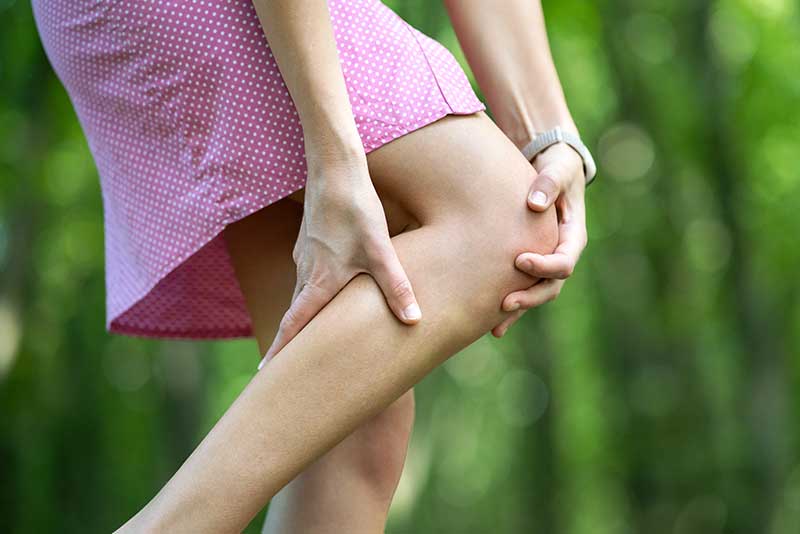If you are looking for the easiest method to get fit, maintain a healthy weight, and live a long healthy life then you should consider walking in your routine. It is so simple that even a toddler can do it, and the benefits of taking a walk are endless. Unlike other forms of workouts, walking is free and easy. All you need is to incorporate a half an hour-long walk into your morning and evening routine and a sturdy pair of walking shoes. Even if you incorporate 30 minutes of brisk walking into your schedule then it can reduce the risk of various ailments such as diabetes, heart diseases, and osteoporosis.
Benefits Of 30 Minutes Of Walking
Here are some benefits of incorporating 30 minutes of walking into your routine.
1. Managing Your Weight

If you are finding it hard to manage your weight then you can include a 30-minute brisk walk or fast walking in your routine. It is a gentle form of cardiovascular exercise which burns calories and helps you to manage your current weight by preventing you from gaining additional weight. When you walk daily for 30 minutes, it helps in boosting your metabolism while preventing muscle loss.
Scientific research supports the effectiveness of walking in weight management. According to a study women who walked briskly for 50-70 minutes three times per week for 12 weeks had significant reductions in visceral fat compared to those who did not exercise . Additionally, regular walking increases metabolism and muscle retention, which helps in burning calories more efficiently, thereby preventing weight gain.
2. Keeping Your Heart Healthy

Walking is a great cardiovascular exercise. According to a study walking daily for 30 minutes a day reduces the risk of coronary heart disease and stroke (Study 1). It boosts your cardiac health by reducing other risk factors such as cholesterol, blood pressure, inflammation, obesity, etc. The risk is further reduced if you increase your distance or duration of your walk.
Multiple studies have demonstrated the cardiovascular benefits of walking. According to research from the American Heart Association, walking for at least 30 minutes a day can reduce the risk of coronary heart disease by about 19% . Furthermore, walking helps lower cholesterol levels, blood pressure, and inflammation, all of which are critical factors in maintaining a healthy heart and reducing the risk of heart-related diseases.
3. Protecting Your Joints

If you are suffering from joint pain, then chances are you want to stay in your bed or couch all day. On the contrary, walking improve your range of motion and mobility in your knees, hips by increasing blood circulation in your stiff areas. According to a study, a group of elderly people whose average walk time was an hour reported reduced pain in their joints (Study 2).
Research indicates that walking can significantly improve joint health. A study showed that older adults who engaged in regular walking had less joint pain and improved physical function . Walking increases blood flow to joint areas, aiding in the lubrication and nourishment of the joints, which can alleviate stiffness and improve overall mobility.
4. Preventing Diabetes

It is a well-known fact that any form of aerobic exercise helps the body in the effective usage of insulin. If you are at risk of getting diabetes or you have already developed the condition, it is best is add a 30 minute boosted walk after your meals. It helps your muscles in the better absorption of blood sugar and prevents its elevation in the bloodstream.
Walking has a profound impact on blood sugar regulation, which is essential for diabetes prevention. According to a study, individuals who walked briskly for 30 minutes a day had a 30% lower risk of developing type 2 diabetes compared to those who did not walk regularly . Walking enhances insulin sensitivity and helps muscles absorb glucose more efficiently, thereby reducing blood sugar levels.
5. Improving Your Mood

Even one kilometer of walking time is enough to refresh your mood and help you concentrate better. Any form of exercise releases endorphins in your body which improves your mood. So whenever you feel overwhelmed, low, and stressed, give yourself some time to unwind by going for a short walk. You can also walk on your balcony.
The mental health benefits of walking are well-documented. A study found that regular physical activity, such as walking, significantly reduced symptoms of depression and anxiety . Exercise stimulates the release of endorphins, the body’s natural mood lifters, and walking can be a simple yet effective way to improve overall emotional well-being.
6. Boosting Your Energy

When you feel down or lethargic, instead of grabbing a cup of coffee for the energy, you can go for a walk. Walking increases the oxygenation in the body which gives you a boost of energy. For elders, if you feel that going outdoors for a 30-minute walk is too much for you, then you can always try 30 minutes walking workout for seniors at home from YouTube.
Walking as a means to boost energy levels is supported by research. A study demonstrated that a 10-minute walk can increase energy levels more effectively than consuming a sugary snack . Walking enhances oxygen flow throughout the body, which in turn helps increase energy and reduce fatigue, making it a natural and healthy energy booster.
7. Helping You Live Longer

Walking at a faster rate adds more years to your life instead of a slower pace and reduces the risk of death. Walking improves your cardiovascular health and prevents other lifestyle diseases from developing. So the faster you walk the more your risk of death will drop.
The correlation between walking and increased longevity has been confirmed by various studies. According to research individuals who walked briskly had a 24% lower risk of dying from any cause compared to those who walked at a slower pace . Regular walking improves cardiovascular health and mitigates the risks of various chronic diseases, contributing to a longer, healthier life.
8. Boosting Your Immune System

Nowadays everyone wants to boost their immunity and walking is one of the safest and easiest ways. Walking is a moderate-intensity exercise that boosts our immune system. It lowers the risk of getting ill from various infections by increasing the number of immune cells that attack various disease-causing pathogens. Also, if you get sick, it improves the chance of recovering faster.
Walking’s impact on the immune system is supported by scientific evidence. A study showed that moderate-intensity exercise, such as walking, increased the number of immune cells circulating in the body . These immune cells play a crucial role in defending against infections, thus boosting overall immunity and enhancing the body’s ability to fight off illnesses.
9. Enhancing Your Creativity

When you feel stuck on some tricky problem, it is best to go out for a walk and clear your head. Any sort of physical activity boosts your creativity. According to a study (study 3), people get new and creative ideas when they are walking, especially outdoor walking in nature instead of sitting idly. So if you are looking for a creative idea, it is best to go for an outdoor walk.
Walking has been found to enhance creative thinking and problem-solving abilities. A study conducted by Stanford University discovered that individuals who walked, whether indoors or outdoors, experienced a significant increase in creative output compared to those who remained seated . Physical activity, such as walking, helps clear the mind and promotes the generation of new and innovative ideas.
10. Delaying Varicose Veins

As you grow older, your chances of getting varicose veins increases, and walking is the best way to prevent or delay it. Varicose veins are enlarged, twisted veins that can appear anywhere on the body; however, they generally occur in the back of the legs. It causes excessive swelling and pain in the legs. Walking, especially fast walking benefits your legs muscles by improving healthy blood circulation in your legs. So if you don’t have varicose veins, regular walking help in delaying the onset of varicose veins, or if you already have them, then it prevents swelling in your legs.
Research indicates that walking can help prevent and manage varicose veins. According to a study, regular walking improves blood circulation and reduces the pressure in veins, which can prevent the formation of varicose veins . For those already suffering from varicose veins, walking can alleviate symptoms by promoting healthy blood flow and reducing swelling and discomfort.
If you are not a regular walker, try to incorporate at least a 30 minute morning or evening walk into your schedule. Our bodies are not meant for a sedentary lifestyle and any type of physical activity is better than no activity. So what are you waiting for? Put on your shoes and go out for a nice walk.
Watch this Video For More Details:

Anjani Kumar Shrivastava, a distinguished yoga expert with decades of experience, brings healing and wisdom through yoga therapy, meditation, and Ayurvedic principles. His remarkable Read more



